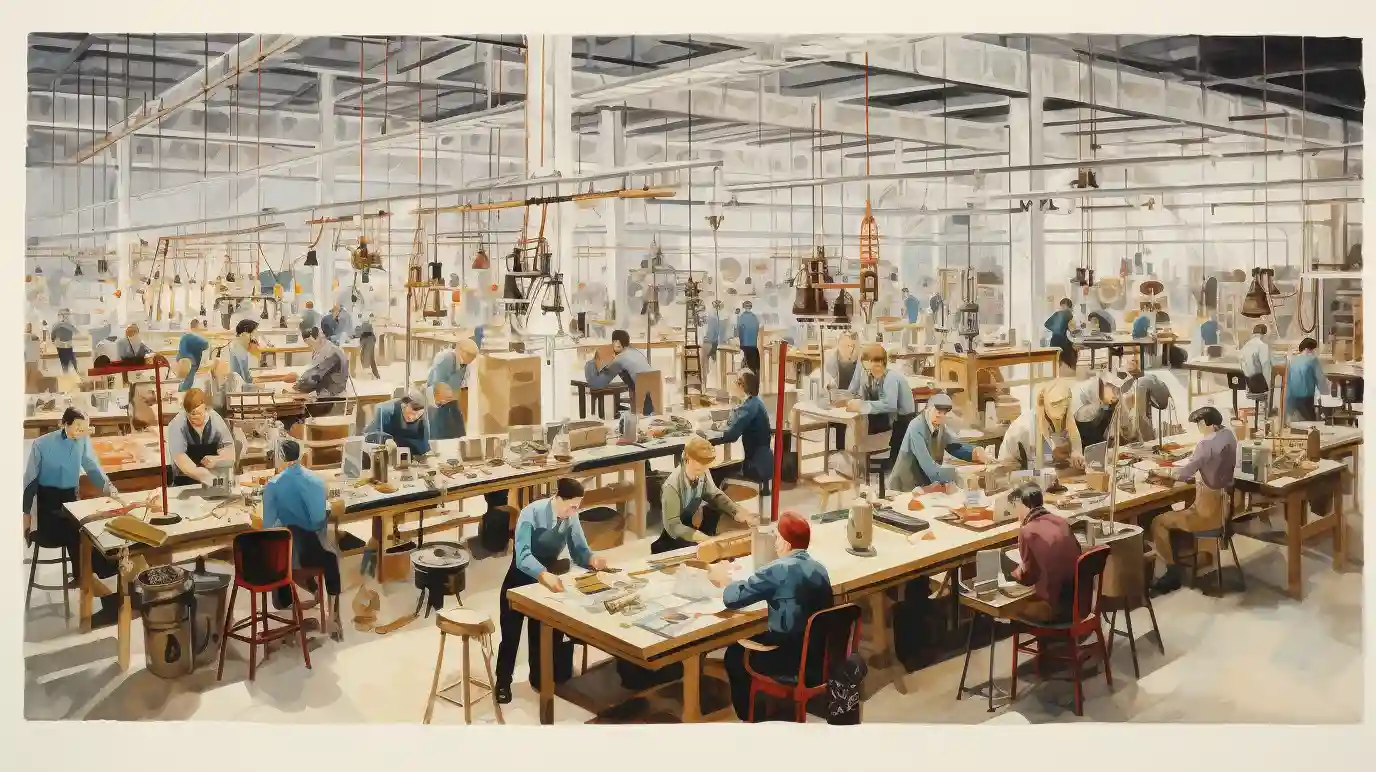Is AI going to take my job?
Is this actually an interesting question? Perhaps in a sense no, although I feel I would have to take a stab at answering it to explain why.
First of all, terminology. I’m talking specifically about generative AI here, not AI in general; the discourse happening at this moment is a response to ChatGPT’s arrival in 2022.
Why? Let’s look at its name. GPT stands for “generative pre-trained transformer”, which summarises that the AI we’re talking about…
- follows the invention of the “transformer” architecture by Google engineers in 2017,
- is trained on large amounts of data in advance of finetuning and use, and
- generates new content from connections it’s learned from that training data.
Transformers also power the diffusion models that generate images.
The phrase “(Generative) AI won’t take your job but someone who uses it might” is deployed variously to answer this question. Do I agree?
On investigation, this becomes (partially) a question about the rate of change among sectors of the wider economy. Jobs change naturally. Over a 20-year period, the same job becomes different. GenAI may, however, increase the rate of change. This question is therefore about the delta between two values: how fast is a given economic sector changing and how fast do the workers in that sector respond? (Both of these are a function, to some extent, of leadership and education within the sector).
Large organisations change at a rate dictated by inertia, risk aversion, fear of missing out, and compliance. What is the time delay between when a thing first becomes possible and when it achieves transformative change? The high streets only really collapsed over the last three years. Yet how long was it since Amazon launched? My guess is that bottlenecking will draw out the change in the broader economy to a roughly 5-20 year timeframe, at which point second- and third-order effects will be compounding.
Rate of adaptiveness of workers seems to me in part to be a function of sector/organisational leadership and access to education, and partly to the intelligence (i.e. speed at operating effectively based on partial information) and conscientiousness (i.e. the extent to which they are goal-orientated, feel a need to be productive, are hungry for self-improvement) of individuals and associations of individuals.
Therefore, in my opinion, the answer to the question “Will (generative) AI take my job?” is that it depends on the extent to which your sector is susceptible to change from such tech stacks and workflows (illustration and graphic design, for example, have already been greatly altered in only 18 months), the extent to which leadership in your sector press for and can rationalise upskilling, and your own personal desire to be an agent of change, along with that of your colleagues.
A major challenge posed currently, and where the democratising promise of using natural language to access computation gets betrayed somewhat, is that there is an arcane nature to getting good results. You have to say things the right way, use the secret handshake, have studied the esoteric rituals, collectively called “prompt engineering”, and this risks striating society more than uniting it into groups who can understand and join in conversations about this (and hence both use it and have an informed opinion on it) and those who cannot.
I am particularly interested in the potential of generative AI to produce meaningful insights about the experience of place. I am personally less interested in quantitative and regulatory use cases, though I appreciate they are important. How can genAI assess impact of a proposal on setting, for instance? Can sample answers be drawn from a hypothetical space that achieve some statistical significance when compared with the answers of real people? Could genAI contribute to a housing design audit, a la Place Alliance? Could it provide recommendations on the design quality of a proposed development? Could a diffusion model producing 3D outputs (this is currently being worked on) and a model that offers feedback on the likely subjective experience of a person in that environment be linked in a recursive way?
I write about these topics each month at my column, Artificial Realities, for the RTPI’s Planner Online.

